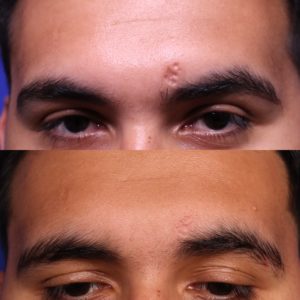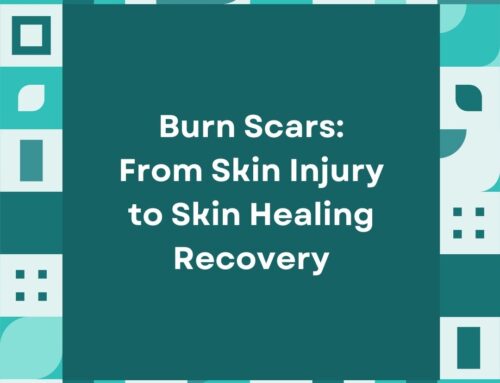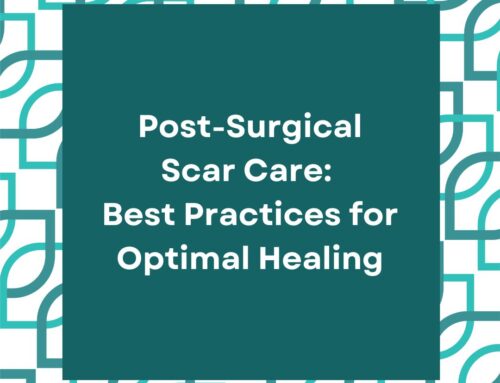Surgical Scarring
Surgery that involves cutting the skin is one of the leading causes for cutaneous scarring. Every year at the Scar Healing Institute, we see hundreds of cases of scars caused by medically necessary and elective procedures. Surgical scarring is caused by a variety of factors, including genetics, lifestyle, severity and location of injury, and the body’s natural healing process.
Another factor that is commonly overlooked is the surgeon’s suturing technique. During these surgeries, the physician’s main concern is to close up the wound in a time-efficient manner. However, to make the incisional wound heal nicely without a scar, extra care must be taken for each individual stitch.
For instance, we recently saw a patient who had incisional scars on both of her hips, each measuring around 3 to 4 inches. One side healed flat while the other healed with a large dip. Variable technique could have been one of the causes for the asymmetrical appearance of her scars, in addition to other factors, such as her body’s aberrant healing response. When we physically pinched the scar, it dimpled downwards, suggesting that the sides of the wound were brought together at a suboptimal angle.
What does this mean? Well, when you close large incisional wounds, you cannot simply pull the sides together and leave the surgical line flush with the surrounding skin. Instead, you have to raise the line slightly so that by the time it heals completely, the wound becomes flat with the skin. This is because scar tissue contracts or shrinks, which must be taken into account when repairing the open wound. Not a lot of doctors know this or perhaps do not consider the cosmetic outcome as much as scar revision specialists would.
How do I treat surgical scars?
Surgical scars can be treated with a variety of different modalities depending on the patient’s primary cosmetic concern.
For hyperpigmentation, there are several non-invasive treatments for fading the scar’s pigment:
- Topical hydroquinone: A chemical that is used to lighten the skin by reducing the amount of melanin in the skin. It is often used to treat conditions such as freckles, melasma, and age spots. It can also be used as a preventative measure to reduce the risk of hyperpigmentation after a treatment.
- Q-switched laser: A device that emits short, high-energy pulses to break down pigment in the skin, which is then naturally eliminated by the body, lightening the treated areas.
- Fractional laser: Similar to Q-switched lasers, this modality breaks down pigment into smaller particles in the skin. However, this device delivers microscopic channels in the skin in a grid-like pattern with small laser beams. This controlled ablation accelerates the shedding process of hyper-pigmented skin.
- Pulse dye laser (PDL): The wavelength of this laser is selectively absorbed by pigment molecules, leading to their breakdown. It is one of the least invasive laser modalities available for treating this condition.
- Intense pulsed light (IPL): This device emits a broad spectrum of light to eliminate excess pigment in the dermis. Because it utilizes multiple wavelengths, IPL can treat a variety of skin conditions simultaneously.
- Chemical peeling: A simple approach that involves applying a chemical agent to the skin to remove the top layer of the skin carrying melanin. This lightens the skin and also promotes skin tightening, giving your face a more radiant appearance.
- Microneedling: This method entails the use of a needle studded roller or stamp that introduces microscopic holes in the skin. When combined with chemical peeling, this approach allows for deeper penetration of chemical agents, further enhancing the lightening effect.
Fractional and fully ablative lasers, such as erbium:YAG and CO2 lasers, are also effective for improving texture and stimulating collagen production. However, it is important to note that darker skin types are more prone to post-treatment hyperpigmentation, especially with fully ablative and/or CO2 lasers.
How do you treat very depressed or atrophic surgical scars?
Severe atrophic surgical scars may not derive as much benefit from laser resurfacing treatments. Although lasers can help thicken the skin, depressed scars can be attached or “tethered” to the underlying tissue, which can only be released through procedures such as subcision.
In this method, hypodermic instruments, such as needles and cannulas, are inserted underneath the scar and maneuvered in a lancing or fan-like motion to manually sever the tethers causing the scar adhesions. In the above example, the patient had such a large dip in her left hip that she needed subcision to not only release her scar but also re-homogenize the fat into the volume-deficient area.
Once the skin is elevated near the level of the surrounding healthy skin, ablative treatments, such as lasers and dermabrasion, can be used to smoothen out the remaining textural irregularities.

What about hypertrophic or keloid surgical scars?
Hypertrophic scars are raised fibrous skin lesions that arise from the overproduction of collagen during the wound healing process. When the scar grows uncontrollably beyond the borders, it is called a keloid scar.
Treatment depends on which maturation phase the scar is in:
- Inflammatory phase: This phase commences when the injury occurs and persists for a few days. Your immune system sends white blood cells to clean up the wound debris and promote the healing process. The scar usually appears red and swollen during this phase.
- Proliferative phase: During this phase, new collagen is being produced to replace the damaged tissue. This is usually the point during which excess or deficient collagen is being produced, leading to either hypertrophic or atrophic scarring. This phase can persist for up to several weeks to months.
- It is important to control inflammation and collagen production during these phases. Steroid injections can really help to calm down the inflammatory process to prevent aberrant regulation of extracellular matrix protein production.
- Remodeling phase: This is the final phase where the scar is given additional time to smoothen, soften, and become less noticeable. It takes several months, if not years, for this phase to resolve.
At this point scars are mature and not as inflamed, making them less responsive to steroid injections. Chemotherapeutic agents, such as bleomycin or 5-fluorouracil, are more effective for minimizing the appearance of hypertrophic and keloid scars, but may result in more side effects, such as blistering, discoloration, and bruising.
At what point do I need surgical scar revision?
Surgical scar revision is generally the last resort we offer for patients. Usually, if the scar is already long, then scar revision may be a good option because there is enough skin to maintain low skin tension after repair.
However, for smaller lesions, surgical approaches often leave behind the same scar that the patient came with, which is something that is beyond everyone’s control.
There are different surgical scar revision techniques that you can discuss with your physician:
- Excision and repair: The scar can be completely removed and sutured in a linear fashion.
- Flap repair with Z- or W-plasty: Linear scars can be broken into a Z or W shape to relax skin tension to improve the post-surgical scar appearance. Also by breaking up the straight line of the scar, it naturally draws less attention to the human eye.
- Skin grafting: For large areas of scarring, there is often not enough adjacent skin tissue to reconstruct the area. Skin grafts taken from blood-rich donor sites, such as behind the ear, on the thigh, or on the scalp are transferred to the scar revision site to improve its cosmetic appearance.
Final words…
Surgical scarring is very tough to deal with because it serves as a reminder of all the experiences that the patient had to go through. Also, its cosmetic appearance can draw a lot of unwanted attention, which can add to the psychosocial burden of patients.
The treatments we described here are great options to reduce the appearance of surgical scarring. However, we always advise patients who are struggling mentally to see a counselor to undergo talk therapy or psychiatric medication management to help them cope through the process.
Scars can scar more than just your skin, and the team at the Scar Healing Institute is here to help you along the way.
Schedule an Appointment
Scar Healing Institute
Scar Healing Institute is committed to developing the most effective treatments for scarring. Our team of scar revision specialists are continually inventing the latest technologies and formulas to deliver the best results for our patients.





It’s nearly impossibe to find knowledgeable people on this topic, but you sound like you know what you’re talking about!
Thanks https://Ukrain-Forum.Biz.ua/